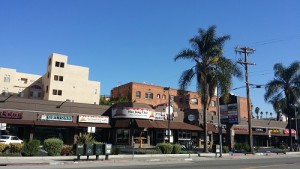This comparative analysis documents the experiences of personal care workers – those who are paid to help people with physical limitations (due to disabilities, illness, or ageing) function in their day-to-day lives.
 Why and how did personal care workers come to do this work? What do they like and dislike about it? How do they think things could be improved and what efforts are being made to do so?
Why and how did personal care workers come to do this work? What do they like and dislike about it? How do they think things could be improved and what efforts are being made to do so?
The project builds on an earlier Toronto-Los Angeles study. In this phase, we interview women from China, Korea, and the Philippines working in different locations in California.
In California, care recipients hire and fire care workers, but state entities determine the hours and pay, and bargain with unions over wages and benefits. In Ontario, immigrants are hired and paid by both for-profit and not-for-profit agencies – some unionized – contracted by the state. In both places, most workers are permanent residents or naturalized citizens but may have entered under different statuses. Ethnic economies – where the workers and service users are of the same race or ethnicity and work and live in the same neighbourhoods, are present, especially in California.
We ask how different structures of employment and different migrant statuses, along with ethnic and racial difference, shape workers’ lives. And how do all these factors shape organizing to improve work conditions?
Leader
Cynthia Cranford
Collaborators
- Young Shin
- Jennifer Chun
Partners
- Service Employees International Union (SEIU) healthcare
- Asian Immigrant Women Advocates (AIWA)
Other collaborating organizations
- Filipino American Services Group Inc. (FASGI) in Los Angeles
- Pilipino Workers Center (PWC) in Los Angeles
- Service Employees International Union (Local 2015) in Los Angeles
Students and post-docs
- Jennifer Nazareno
- Valerie Damasco
- Conely de Leon
- Loiuse Birdsell-Bauer
- Chi Cheng Wat
- Angela Hick
- Michael Lee
- Justin Kong
- Yang-sook Kim